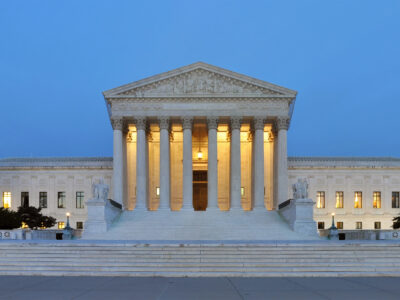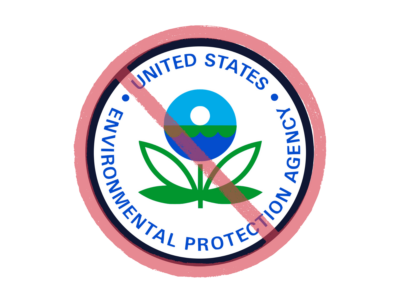Sessions Out, Whitaker In: What Might the DOJ Shakeup Mean for Environmental Enforcement?
¯\_(ツ)_/¯

News broke this afternoon that Trump has forced Attorney General Jefferson Beauregard Sessions III to resign — naming Sessions’ chief of staff, the Marbury v. Madison critic and sports take tweeter Matthew Whitaker acting AG. This move obviously has some pretty horrifying implications for the country at large, but it’s worth thinking about how the AG can also impact environmental policy.
The US Attorney General is our chief law enforcement officer, and heads the US Department of Justice. The AG determines what DOJ’s priorities should be when enforcing the nation’s laws on a limited budget. This includes decisions about whether and to what extent attorneys in the Environment and Natural Resources Division (ENRD) should be enforcing and defending our federal environmental laws. While DOJ has less influence over environmental policy as compared to EPA, DOI, or other more directly environment-related federal agencies, enforcement discretion can still have a significant impact.
Jeff Sessions is a noted climate skeptic and came into the DOJ with a long history of anti-environment beliefs backed up by oil/gas campaign contributions. He served on the Environment and Public Works Committee as a US Senator, where he frequently voted in favor of oil drilling and energy production. These beliefs, combined with the overall anti-regulatory attitude in the Trump administration, had measurable impacts on how DOJ handled environmental enforcement.
Last year, the New York Times found the Trump administration was filing significantly fewer environmental enforcement actions than either the Obama or George W. Bush administrations. The Times investigation looked at both administrative actions brought by EPA, and judicial actions brought by DOJ, and found that both categories had declined dramatically. The Project on Government Oversight (POGO) found similar trends, discovering via FOIA request that “the entire federal government launched only 55 new prosecutions for environmental crimes—a 14 percent drop from the previous year and a 45 percent drop from five years ago” during the first fiscal quarter of 2018. POGO noted that “if this low rate holds for the remainder of the year, fiscal year 2018 will have the lowest number of environmental prosecutions since the Justice Department began tracking environmental crimes more than two decades ago.”
(Similar trends were seen across DOJ’s divisions under Sessions: the New York Times also found penalties from DOJ’s white collar criminal and civil prosecutions had dropped more than 70% between the Obama administration’s last 20 months and the Trump administration’s first 20 months.)
Compared with Sessions, Whitaker has a much smaller public record from which to draw. However, we do know that he is also a climate skeptic, answering a question in a 2014 interview about climate change with the following response:
“You know, I think that I’m not a climate denier. It may be warming, I think the evidence is inconclusive, but there may be a human component to global warming. But that’s very small and it may be part of the natural warming or cooling of the planet. I’m certainly not a climate expert, but I don’t believe in Cap and Trade or those types of regulations that try to hamstring the U.S. economy as other countries continue to put carbon into the air. I don’t believe in big government solutions to a problem that doesn’t appear to be that significant or quite possibly isn’t man made.”
We also know that he was extremely hostile to efforts by progressive state attorneys general to seek information from ExxonMobil on their climate change research, penning a 2016 OpEd decrying the AGs’ “effort to undermine the First Amendment by trying to criminalize political disagreement.” (What a surprise – a Federalist Society recomendee who supports federalism right up until blue states band together!) He also used to be the executive director of a bizarre Koch funded conservative watchdog group, the Foundation for Accountability and Civic Trust, or FACT.
Given his skepticism about climate change, opposition to progressive climate litigation, and shady connection to the Koch brothers, it seems Whitaker is likely to continue in Sessions’ anti-environment and under-enforcement footsteps. So not much may change for the environment in a Whitaker DOJ, but stay tuned for the next episode in this series (Whitaker Out, Kobach In?) coming soon.







Reader Comments